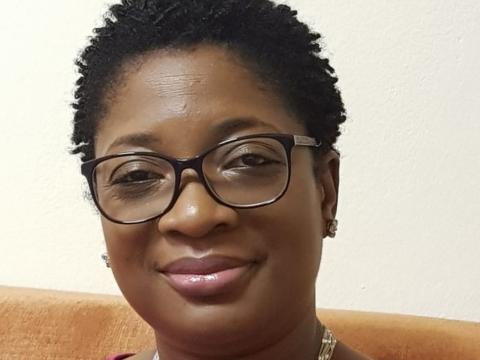By Saio Marrah
A certified accountant and multinational expert in auditing, Jonathan Lamboi, has testified before a tribunal set up to investigate the suspended Sierra Leone’s Auditor General and her deputy, Lara Taylor-Peace and Tamba Momoh respectively, that the country’s Audit Service violated ethical conduct in its auditing.
Lamboi told the tribunal in Freetown on Thursday 16th November 2023 that the audit service violated the ethical procedure regarding a third party confirmation.
The witness said during the auditing exercise, if the auditor has gathered sufficient and accurate reliable evidence that fraud has happened during the transaction, the auditor can design a confirmation mechanism to confirm with a third party to assert corroboration.
He said the process of doing that is to ensure the auditor seeks permission from the auditee requesting third-party involvement to supply the information, which the auditor wants.
According to him, the reason for such is embedded in the ethical standard of auditing.
The witness also informed the tribunal when he was tendering a particular document regarding a third-party involvement pertaining to hotel bill receipts, which he said was not signed by the auditor, the auditee, or the third party. He said the document was a letter sent to the secretary to the president in 2021.
Giving his expert opinion, the witness said, “It was not properly designed. Procedures not properly followed.”
According to him, the right procedure aims at ensuring objectivity, and confidentiality relating to that aspect of the audit.
His justification was that users of audit documents would have to rely on the auditor. The witness also pointed out that the auditor must not have a conflict of interest and that the exercise must be done to the best ability of an auditor. He added it is to avoid bias against the auditee.
Lamboi, who said he had done auditing service in Senegal, the Gambia, and the United Kingdom and, many companies in Sierra Leone pointed out that the issue of confidentiality is of utmost importance in the code of conduct.
He however noted that the auditor should not disclose any information to any third party unless a legal permission or public interest, etc.
According to him, third-party confirmation permission can also be done electronically, but security measures should be embedded in it.
Responding to the question of what the auditor ought to have done when issues of discrepancy in respect to receipt occurred he said the auditor should inform the auditee and try to resolve it.
If the issue is still not resolved, the auditor should discuss it with the auditee’s internal audit management, and if still not resolved the auditor should then include it in its report.
Thus, he said it is not prudent for the auditor to inform the third party pointing out that the normal procedure is to seek permission from the auditee.
He however noted that when a document has been forged, the auditor can contact the third party directly.
During cross-examination by Lawyer Roland Wright, the witness said he could not cite any authority, but that it is based on general standards including financial auditing.
He said the factors to consider is for the auditee to be aware of it and not to prevent confidentiality.
One of the three panels, Justice Ivan Sesay cautioned Wright that what he ought to have done was to discredit what the witness had presented with proof and further cautioned him that the witness was giving his expert opinion.
Wright also told the tribunal that the CV of the witness showed that throughout his 20 years in auditing career, he never had an experience of public institution auditing.
However, the witness pointed out that he is qualified to conduct auditing in every corner of the world. The tribunal resumes next Tuesday 21st November this year.
Copyright © 2023 Politico (17/11/23)








